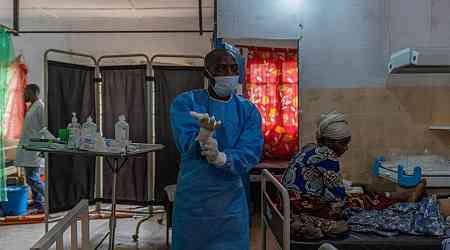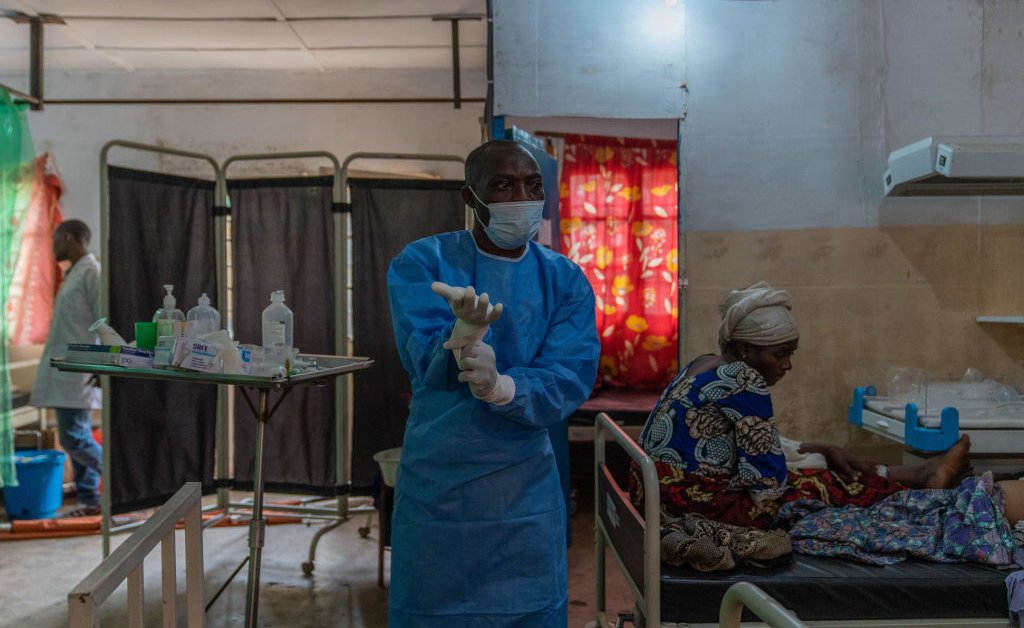
For the second time in two years, the World Health Organization (WHO) has declared mpox a public health emergency of international concern. Mpox didn’t disappear in between the two outbreaks, but the WHO’s new announcement signals that it is again becoming a significant concern for global health.
[time-brightcove not-tgx=”true”]Right now, the mpox outbreak is concentrated in Africa, where the virus has long been endemic in certain areas. The illness is particularly prevalent in the Democratic Republic of the Congo (DRC), but countries including Burundi, Nigeria, Kenya, Uganda, and the Central African Republic also have cases. Sweden and Thailand have each reported a travel-associated case linked to the outbreak.
Currently, the WHO says risk to people in other parts of the world is “moderate.” Here’s what to know about mpox in 2024.
How is this outbreak different from 2022?
The current outbreak is more complicated than what the world experienced two years ago, says Dr. Krutika Kuppalli, an infectious disease physician who worked on the WHO’s mpox response during the 2022 outbreak.
That outbreak was linked to one clade (or strain) of the virus: clade 2b. That clade never went away completely, but many countries were able to contain its spread. Now, cases linked to clade 2b continue to be diagnosed in many places, while countries in Central and Eastern Africa are also reporting cases related to another strain, known as clade 1. Some countries, including the DRC, have also seen cases resulting from a recently identified subvariant of clade 1, labeled clade 1b. “We’re still learning about this new variant,” Kuppalli says.
Read More: 9 Weird Symptoms Cardiologists Say You Should Never Ignore
Health authorities including the U.S. Centers for Disease Control and Prevention (CDC) say clade 1 tends to be more severe than clade 2b, and some estimates have placed the new clade 1b’s case fatality rate as high as 6%. But research findings released in August suggests clade 1 has a lower mortality rate than experts initially thought—around 1.7%—when patients receive adequate medical care. A small study published in Nature Medicine in June also found that about 1.4% of patients infected with the new variant died. Kuppalli says emerging reports from the region suggest the rate may be even lower, around 0.7%, which is encouraging.
How is mpox spreading?
When someone has mpox, they often have flu-like symptoms before developing a blister-like rash. They are considered contagious until the rash has fully healed, according to the CDC.
Mpox is often transmitted through direct skin-to-skin contact with someone who is infected. But it can also spread via exposure to infected animals, contact with a sick person’s bodily fluids, or from a pregnant person to their fetus, the CDC says.
Read More: AI Could One Day Engineer a Pandemic, Experts Warn
During the 2022 outbreak, sexual contact among men who have sex with men was a major driver of spread worldwide. Sexual contact is still contributing to a high percentage of cases, according to the WHO. But during the current outbreak in Africa, the virus also seems to be spreading through non-sexual forms of person-to-person contact, the agency says. Children have been disproportionately affected in the DRC—predominantly with the original clade 1 strain, which is known to affect kids, Kuppalli says.
Reasons for shifting transmission patterns are “probably multifactorial,” she says. Possible reasons include decreased population-wide immunity since people are no longer routinely vaccinated against smallpox (which is similar to mpox), changes to the virus itself, increasing spillover from animals, or the prevalence of compounding health problems—like other infections or malnutrition—that make people more vulnerable. There also seems to be some animal-related transmission occurring in the DRC, according to CDC research.
Are mpox rates going up in the U.S.?
As of Aug. 22, the U.S. had not identified any cases linked to clade 1 mpox. But cases related to the strain that caused the 2022 outbreak continue to be diagnosed. “People forgot mpox was still here,” says Dr. Jason Zucker, an infectious disease physician at NewYork-Presbyterian/Columbia University Irving Medical Center. “Even though mpox left the news and we thought about it a lot less, that doesn’t mean it actually went away.”
More than 1,700 mpox cases have been reported in the U.S. so far this year, according to preliminary CDC data. That’s far lower than during the initial outbreak, when more than 30,000 cases were diagnosed from 2022 into the first half of 2023.
Even with clade 2b continuing to spread, Zucker says he’s optimistic that cases will not rise anywhere close to as high as they previously did. Mpox’s spread in 2022 was unexpected, leaving laboratories, physicians, and public-health systems scrambling to catch up. Now, Zucker says, people with symptoms are more seamlessly diagnosed, tested, and treated, and vaccines are available for those who need them.
Should I get vaccinated?
The CDC’s Advisory Committee on Immunization Practices recommends mpox vaccination only for people with certain risk factors, such as men who have or expect to have multiple male sexual partners. With risk of transmission currently low for the general U.S. public, “there’s no reason right now for anyone who’s not in vulnerable populations to be running out to get a vaccine,” Zucker says.
Read More: What to Know About the KP.3.1.1 Variant of COVID-19
Researchers are still determining whether existing mpox vaccines will work against the new clade. There’s not much real-world data available yet, but there’s good reason to think they will, says Alessandro Sette, co-director of the Center for Vaccine Innovation at the La Jolla Institute for Immunology. The currently used shots work against both smallpox and mpox, which suggests they have fairly broad efficacy, Sette says. Pox viruses also tend to mutate less dramatically than viruses like SARS-CoV-2 and influenza, he says.
To help contain the outbreak, the U.S. has agreed to donate 50,000 mpox vaccine doses to the DRC, along with money to support rollout. Countries including Germany and Japan are also donating shots.
Kuppalli says it’s also important to scale up surveillance, testing, and high-quality medical treatment on the ground. “The focus really needs to be on where the outbreak is happening right now, which is in Africa,” she says. “In some cases, that [fact] has been lost a little bit.”

























